Paris, January 8, 2025: MEK Hosts Exhibition Supporting Iranian Revolution and Condemning the Regime’s Crimes
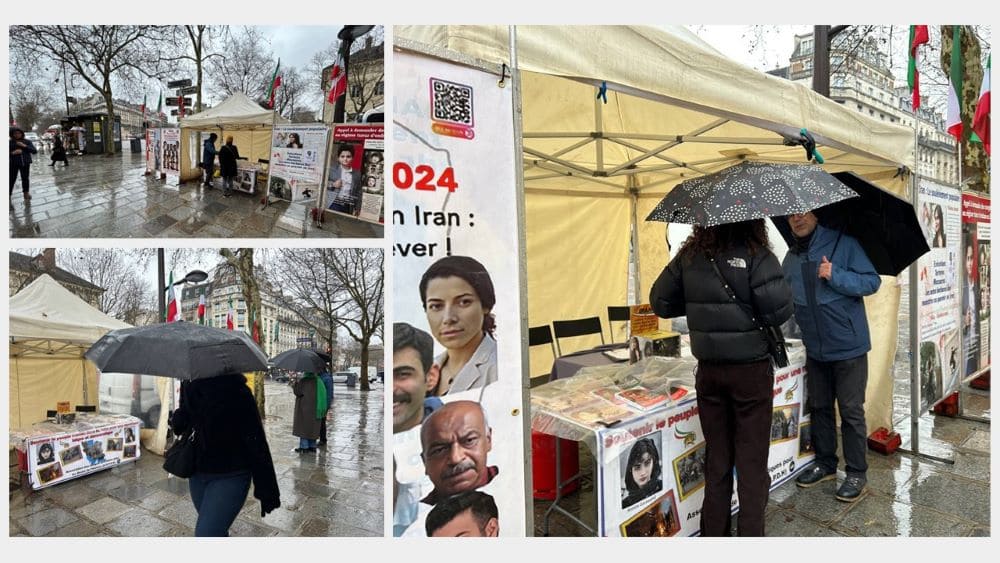
Paris, January 8, 2025: MEK supporters organized an exhibition featuring photographs and books. The event aimed to express solidarity with the Iranian Revolution and denounce the regime’s escalating use of executions.
Sheffield, UK – January 7, 2025: ‘Academics in Exile’ Exhibition Highlights Iran’s Human Rights Violations and Calls to End Executions
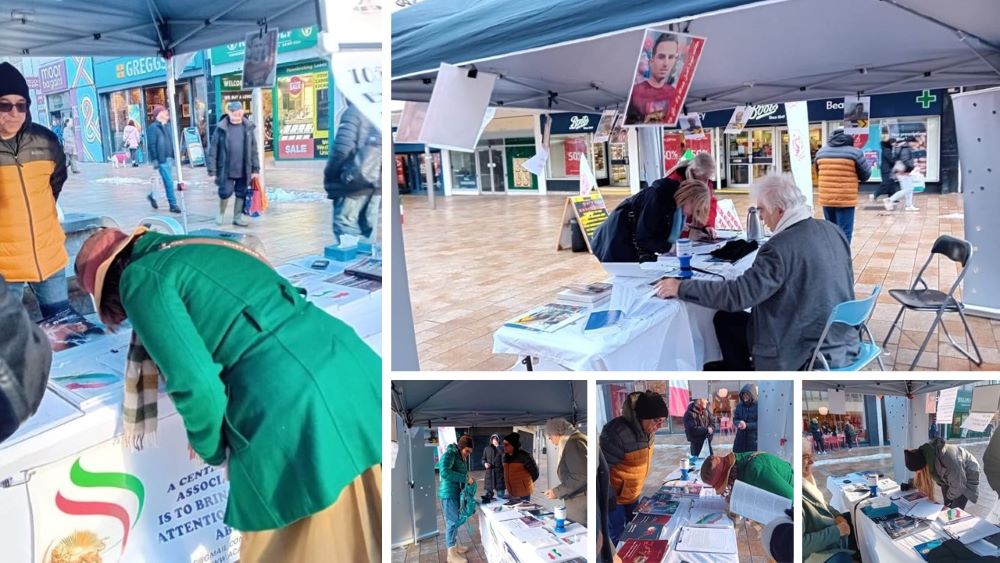
Sheffield exhibition aimed to protest the death sentences imposed on political prisoners linked to the PMOI and to support the “No to Executions” Tuesday Campaign advocating for Iranian political prisoners.
Paris Exhibition on January 4, 2025, Backs Iranian Revolution and Denounces Regime’s Human Rights Abuses
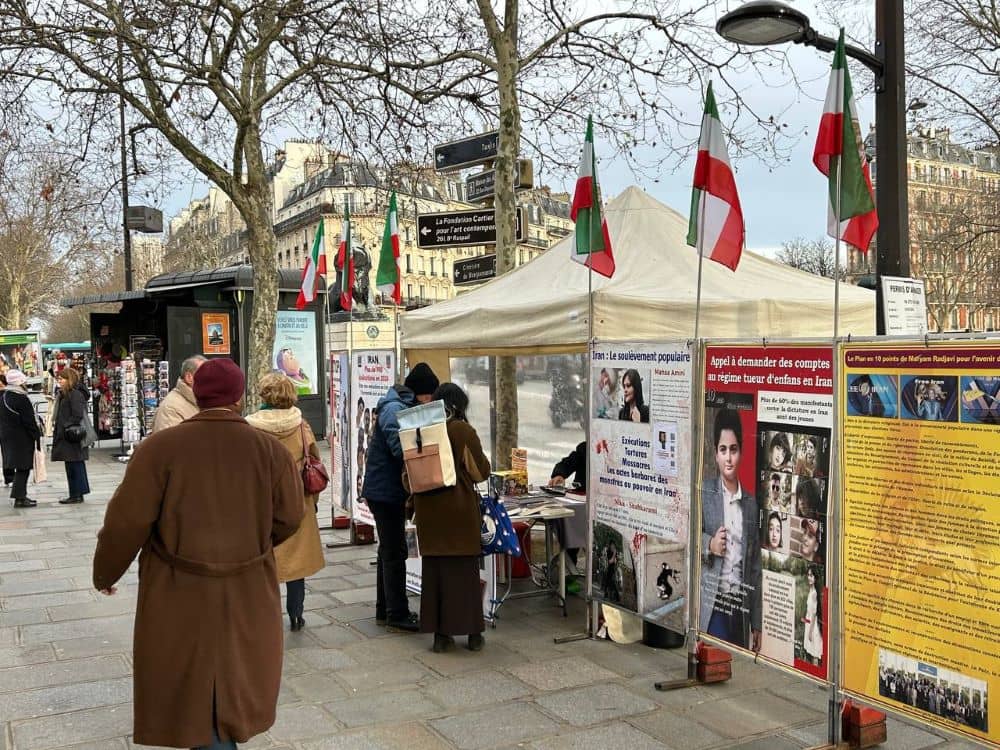
Paris, January 4, 2025: MEK supporters hosted an exhibition to express solidarity with the Iranian Revolution while condemning the regime’s escalating use of executions.
Los Angeles Exhibition Condemns Iran’s Human Rights Violations and Death Sentences for Political Prisoners
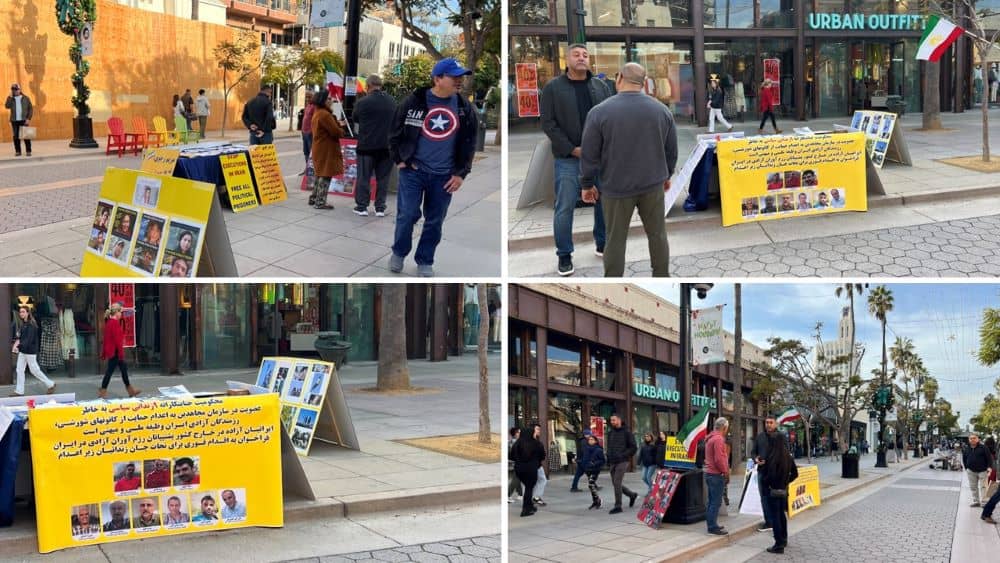
Californian, Los Angeles — January 4, 2025: Supporters of the People’s Mojahedin Organization of Iran (PMOI/MEK) organized an exhibition to express solidarity with the Iranian Revolution and to condemn the Iranian regime’s increasing reliance on executions.
Berlin, January 3, 2025: MEK Supporters’ Exhibition Highlights Human Rights Violations in Iran
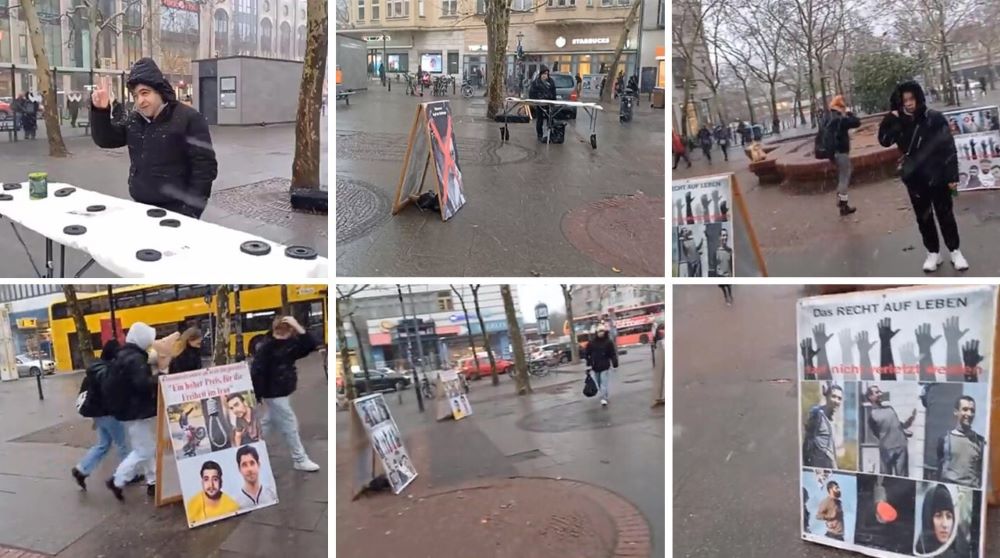
Berlin, Germany—December 31, 2024: On the eve of the new year of 2025, supporters of the People’s Mojahedin Organization of Iran (PMOI/MEK) held a photo exhibition and book display to shed light on human rights violations in Iran.
Manchester Exhibition Denounces Iran’s Human Rights Violations and Death Sentences for Political Prisoners
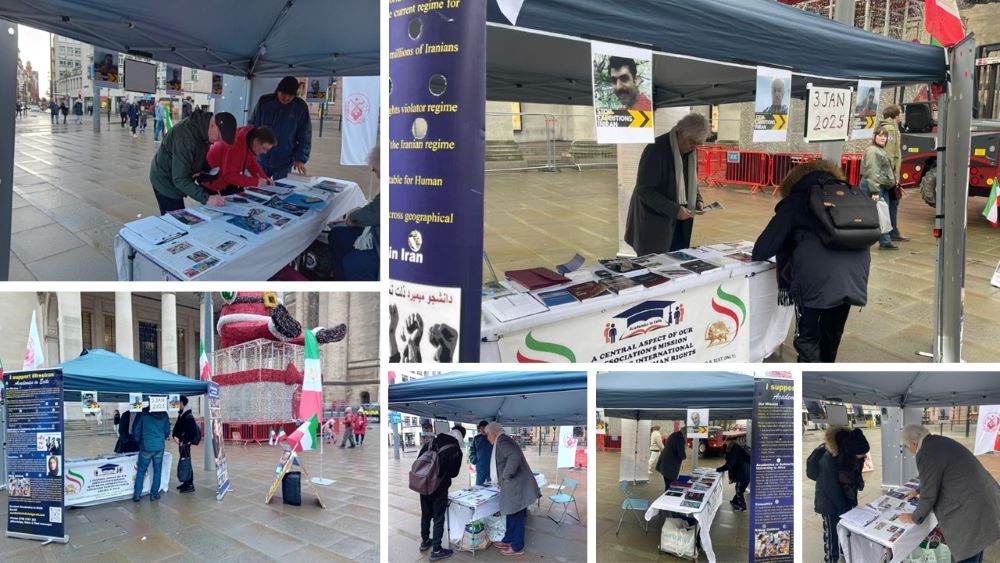
Manchester, UK—January 3, 2025: Iranians, members of the Academics in Exile Association supporting the People’s Mojahedin Organization of Iran (PMOI/MEK), organized an exhibition in England to denounce human rights violations in Iran.
Paris Exhibition on January 2, 2025 Supports Iranian Revolution, Condemns Regime’s Human Rights Violations
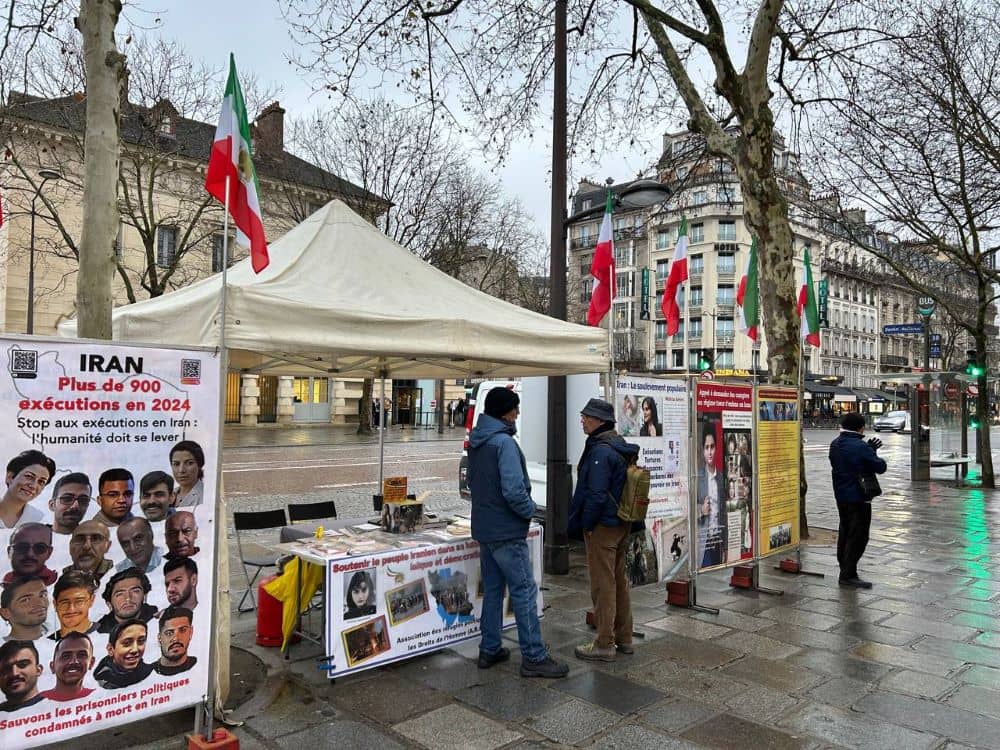
Paris, January 2, 2025: MEK supporters hosted an exhibition to express solidarity with the Iranian Revolution while condemning the regime’s escalating use of executions.
Berlin, December 31, 2024: MEK Supporters Highlight Iran’s Human Rights Violations in Exhibition
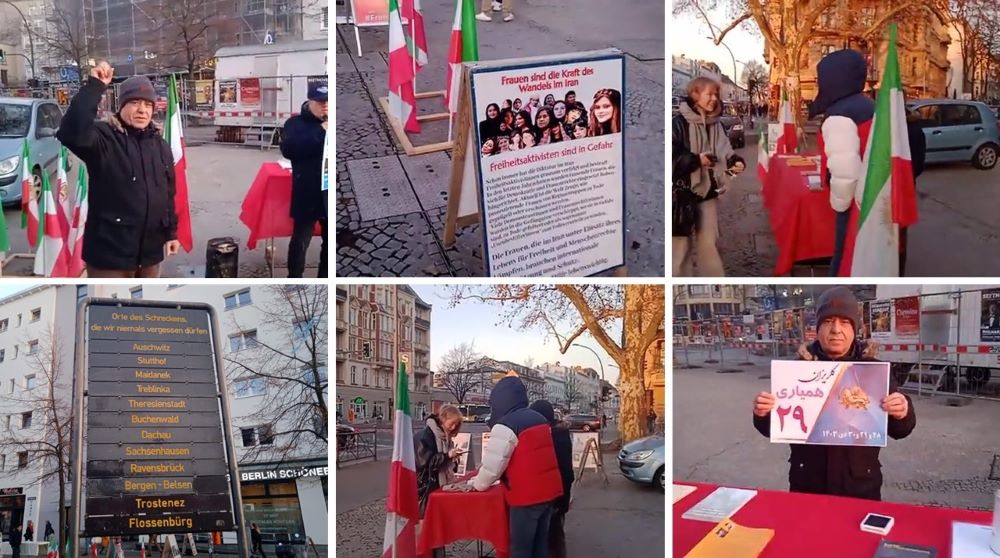
Berlin, Germany—December 31, 2024: On the eve of the new year of 2025, supporters of the People’s Mojahedin Organization of Iran (PMOI/MEK) held a photo exhibition and book display to shed light on human rights violations in Iran.
Paris Exhibition on December 31, 2024 Backs Iranian Revolution, Condemns Regime’s Human Rights Abuses
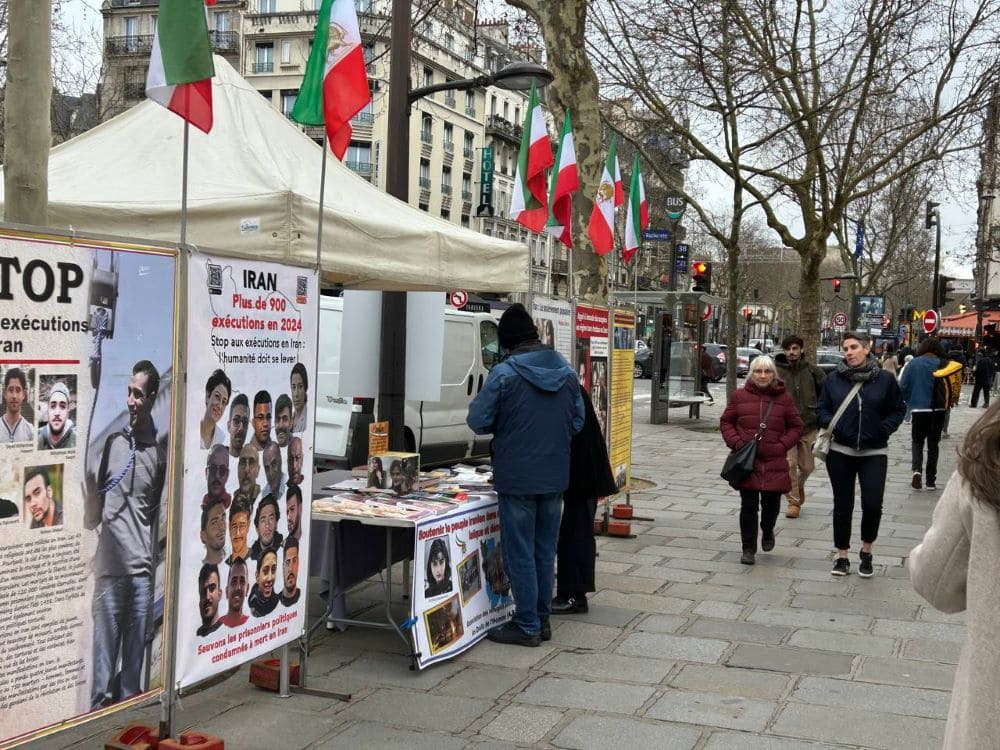
Paris, December 31, 2024: MEK supporters hosted an exhibition to express solidarity with the Iranian Revolution while condemning the regime’s escalating use of executions.
Berlin: Photo Exhibition and Book Table Supporting the 29th Free Iran Telethon and MEK Resistance Units
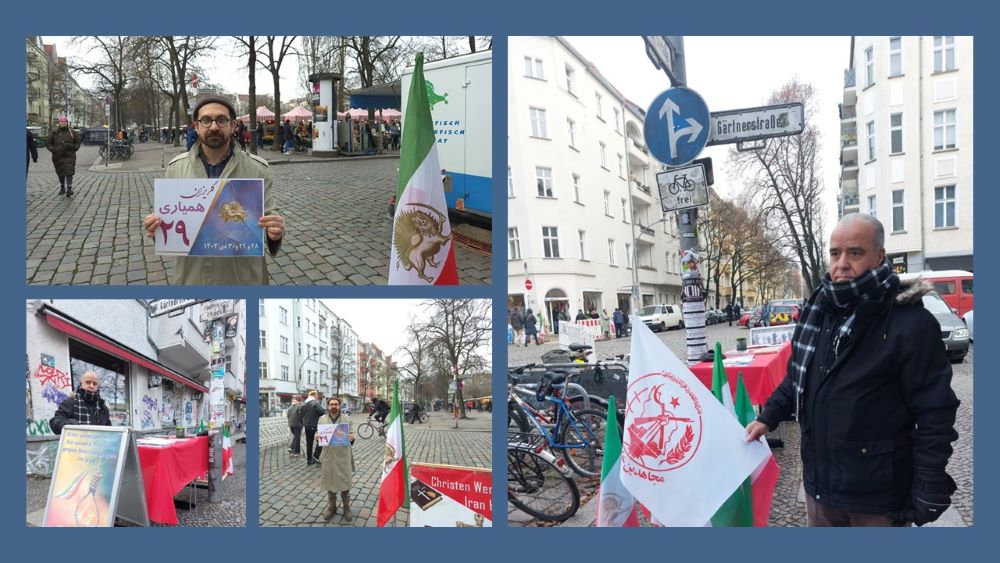
Berlin, Germany—December 29, 2024: MEK supporters organized a photo exhibition and book table. The event highlighted support for the 29th Free Iran Telethon of Simay-e-Azadi (INTV) and the MEK Resistance Unit.
